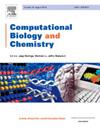Esculetin减轻阿霉素引起的心脏毒性:来自基因表达、酶活性和分子对接分析的证据
IF 3.1
4区 生物学
Q2 BIOLOGY
引用次数: 0
摘要
阿霉素(DOX)是一种有效的化疗药物,其剂量依赖性心脏毒性与氧化应激、炎症和酶功能障碍有关。本研究评估了天然香豆素衍生物esculetin对dox诱导的大鼠心脏损伤的心脏保护潜力。将48只雄性Sprague-Dawley大鼠分为对照组、DOX、esculetin(50和100 mg/kg)和联合处理6组。DOX显著改变氧化应激相关基因的表达(Ache、Ar、Sord上调;Pon1、Gst下调)和酶活性受损,并伴有丙二醛升高和谷胱甘肽水平降低。Esculetin给药,特别是100 mg/kg,逆转了这些分子和生化紊乱,恢复抗氧化防御并使基因表达正常化。分子对接发现,esculetin与AR、SORD、AChE、GST和PON1等关键酶的活性位点有很强的结合作用,支持其调控作用。这些发现表明,esculetin具有多靶点的保护作用,可能作为减轻化疗引起的心脏毒性的有希望的候选者。进一步的研究需要探索其与临床心脏保护策略的结合。本文章由计算机程序翻译,如有差异,请以英文原文为准。
Esculetin attenuates doxorubicin-induced cardiac toxicity: Evidence from gene expression, enzyme activity, and molecular docking analyses
Doxorubicin (DOX) is a potent chemotherapeutic agent whose dose-dependent cardiotoxicity is associated with oxidative stress, inflammation, and enzymatic dysfunction. This study evaluates the cardioprotective potential of esculetin, a natural coumarin derivative, against DOX-induced cardiac injury in rats. Forty-eight male Sprague-Dawley rats were divided into six groups, including control, DOX, esculetin (50 and 100 mg/kg), and combination treatments. DOX markedly altered the expression of oxidative stress-related genes (Ache, Ar, Sord upregulated; Pon1, Gst downregulated) and impaired enzyme activities, accompanied by increased malondialdehyde and depleted glutathione levels. Esculetin administration, particularly at 100 mg/kg, reversed these molecular and biochemical disturbances, restoring antioxidant defense and normalizing gene expression. Molecular docking revealed strong binding interactions of esculetin with the active sites of key enzymes including AR, SORD, AChE, GST, and PON1, supporting its regulatory role. These findings suggest that esculetin exerts multi-targeted protective effects and may serve as a promising candidate for mitigating chemotherapy-induced cardiotoxicity. Further research is warranted to explore its integration into clinical cardioprotective strategies.
求助全文
通过发布文献求助,成功后即可免费获取论文全文。
去求助
来源期刊

Computational Biology and Chemistry
生物-计算机:跨学科应用
CiteScore
6.10
自引率
3.20%
发文量
142
审稿时长
24 days
期刊介绍:
Computational Biology and Chemistry publishes original research papers and review articles in all areas of computational life sciences. High quality research contributions with a major computational component in the areas of nucleic acid and protein sequence research, molecular evolution, molecular genetics (functional genomics and proteomics), theory and practice of either biology-specific or chemical-biology-specific modeling, and structural biology of nucleic acids and proteins are particularly welcome. Exceptionally high quality research work in bioinformatics, systems biology, ecology, computational pharmacology, metabolism, biomedical engineering, epidemiology, and statistical genetics will also be considered.
Given their inherent uncertainty, protein modeling and molecular docking studies should be thoroughly validated. In the absence of experimental results for validation, the use of molecular dynamics simulations along with detailed free energy calculations, for example, should be used as complementary techniques to support the major conclusions. Submissions of premature modeling exercises without additional biological insights will not be considered.
Review articles will generally be commissioned by the editors and should not be submitted to the journal without explicit invitation. However prospective authors are welcome to send a brief (one to three pages) synopsis, which will be evaluated by the editors.
 求助内容:
求助内容: 应助结果提醒方式:
应助结果提醒方式:


